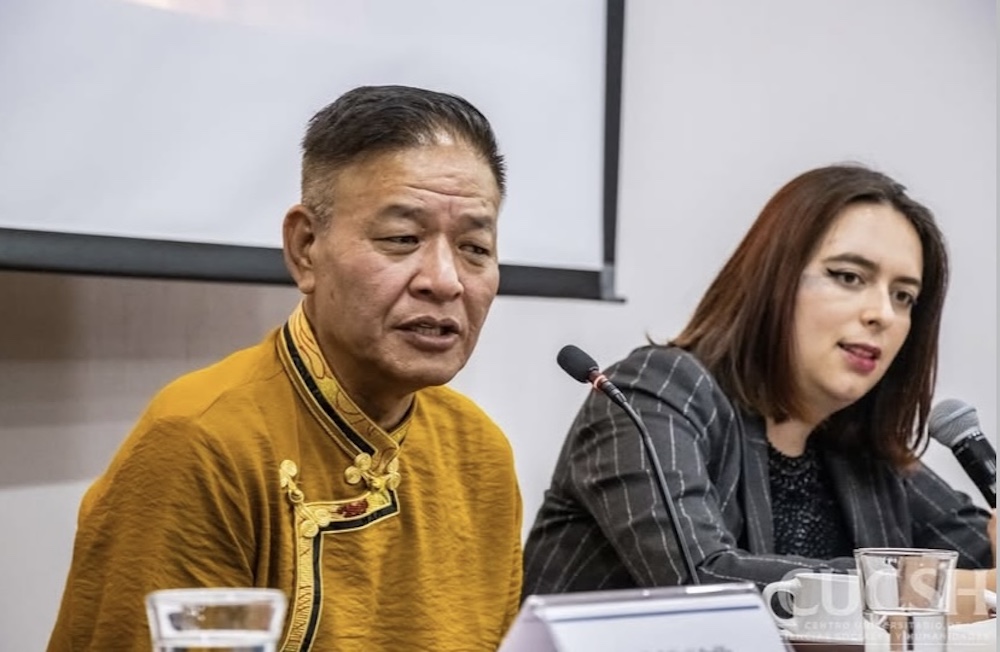By Phurbu Thinley
Dharamsala, December 14: Thirty-five Parliamentarians from 16 different countries have sent an open letter to the head of the UN Climate Change Conference in Copenhagen urging negotiators to take into account the global implications of climate change in Tibet.
 The Copenhagen Climate Change conference has been billed by organisers as the “last best chance” to save the planet earth, and the Tibetan plateau, also known as the ‘Third Pole’, is bearing the brunt of climate change.
The Copenhagen Climate Change conference has been billed by organisers as the “last best chance” to save the planet earth, and the Tibetan plateau, also known as the ‘Third Pole’, is bearing the brunt of climate change.
In the Open Letter to UN Climate Change Conference, the International Parliamentary Network on Tibet has recommended “Tibet’s role in climate change solutions.”
The joint action is part of the Rome Declaration on Tibet adopted in the 5th World Parliamentarians’ conference held in Rome last month. On November 18-19, parliamentarians from 30 countries met in Rome for the Parliamentary Convention on Tibet and drafted a declaration to raise awareness on this critical issue.
The letter calls on the governments to explore multinational mechanisms to work collaboratively on the challenges of climate change in Tibet, including with the direct participation of Tibetan stakeholders.
“We write to urge that the U.N. Climate Change Conference in Copenhagen give serious attention to the ‘Third Pole’, as Tibet is known for being the largest repository of glacially stored water outside of the Arctic and Antarctic,” the parliamentarians for Tibet wrote in the letter.
Chinese meteorologists have said temperatures on the Tibetan plateau are rising twice as fast as the rest of the earth, and that Tibet is becoming an increasingly important barometer of global climate change.
“Glaciers are melting, exposing dark rock and soil, and increasing the absorption of solar radiation. Due to resultant variations in the monsoon cycle, many areas on the Tibetan plateau are drying out and desertifying,” the letter says.
The letter says the Chinese government’s land-use policies are contributing to the acceleration of global warming and environmental destruction, including degradation of the grasslands, on the fragile high-altitude Tibetan plateau, and calls for independent, international scientific assessments of the changes in the Tibetan plateau’s ecosystems, water resources and China’s land use policies.
“These land-use policies include the construction of infrastructure, an emphasis on urbanization despite a predominantly rural population, and the settlement of nomads, which is threatening one of the last examples of sustainable pastoralism on earth. Tibetans are being deprived of the stewardship of their land at a time of environmental crisis,” the letter said.
The letter insists that the participation of scientists and relevant stakeholders from Tibet and from those nations that depend on Tibet’s water is necessary for rigorous examination, analysis and interpretation of conditions on the plateau. It argues that such an initiative will “facilitate an equitable and durable” approach in adapting to and mitigating the affects of climate change in the region.
“Tibet is central to a global climate change solution, and the Tibetan people must play a critical role in the implementation of solutions,” the letter said.
The signatories of the letter members of Parliament representing their Parliamentary Intergroups in Italy, Canada, Iceland, Australia, India, European Parliament, France, the UK, Sweden, Belgium, Lithuania, the Netherlands, Denmark, Estonia, Poland, Scotland and the Tibetan Parliament in exile.
“The issue of the environmental degradation of the Tibetan plateau and the impact of climate change there should be addressed specifically by the Copenhagen summit,” Matteo Mecacci, President of the Tibet Intergroup of the Italian Parliament, said in a press statement issued yesterday.
“The policies of China toward Tibet are undermining not only the livelihood of Tibetan nomads and stakeholders, but also the preservation of natural resources that matter not only for Tibetans, but for hundreds of million of people in Asia and beyond”
“Therefore, we urge the negotiators in Copenhagen to address the issue of climate change in Tibet,” Mecacci said.









